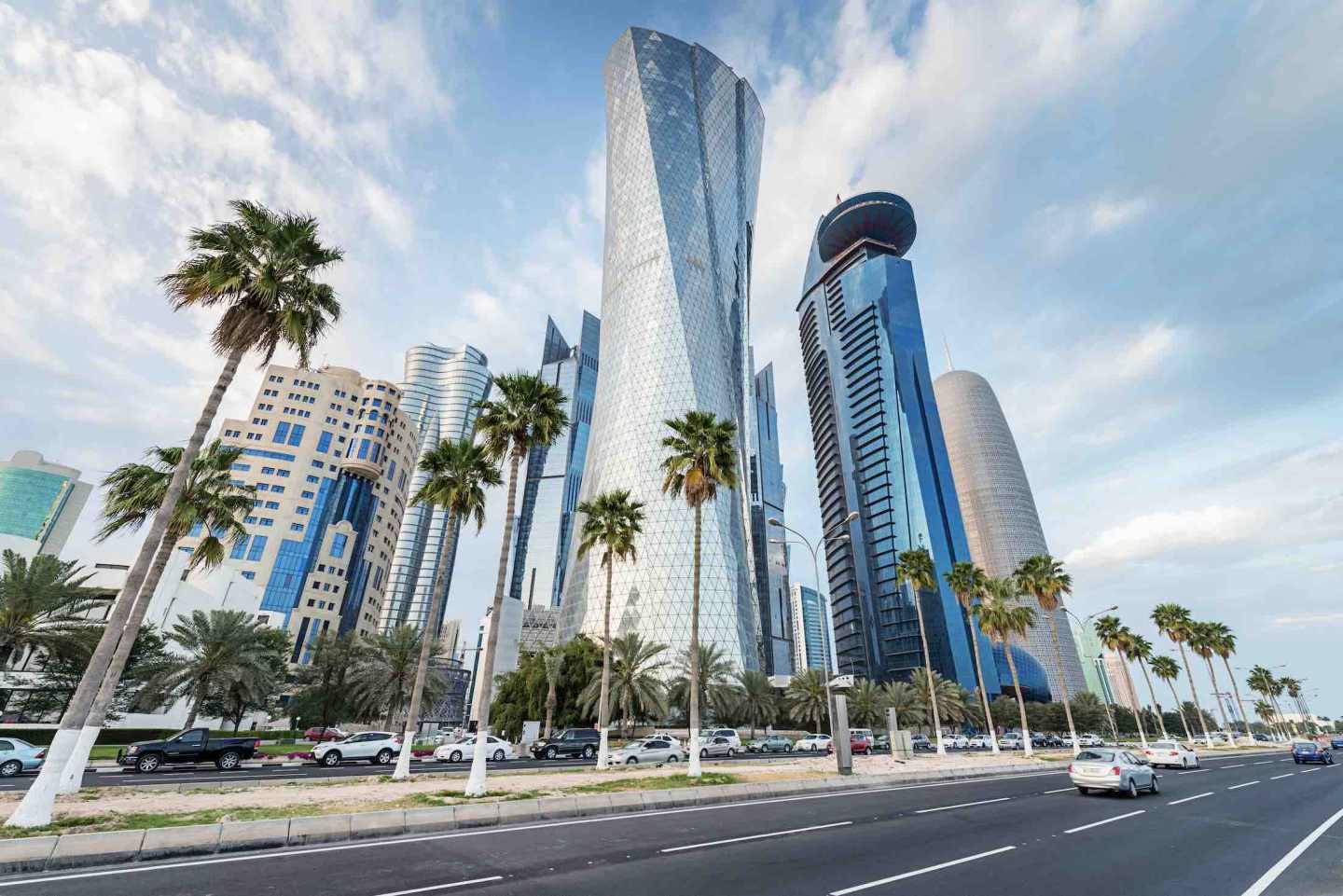Market Research in Qatar
Qatar is a Middle Eastern country located on a peninsula in the Persian Gulf.
Qatar has 2.8 million citizens. Its land contains barren deserts and Gulf shoreline beaches. Qatar shares a border with Saudi Arabia. The Gulf of Bahrain, an inlet of the Persian Gulf, separates Qatar from the island nation of Bahrain.
Qatar has one of the planet’s highest GDPs, and the World Bank lists it as a high-income country. It has some of the largest natural gas and oil reserves worldwide.
What Is Market Research in Qatar?
Market research in Qatar involves systematically gathering, analyzing, and interpreting data related to the Qatari market. It helps businesses comprehend Qatari consumers’ preferences, needs, and behaviors, enabling them to tailor their products or services accordingly.
In a rapidly changing market environment, market research in Qatar helps businesses anticipate potential risks and challenges, allowing them to devise strategies to mitigate them effectively. It also provides valuable data and insights that inform strategic decision-making processes, such as market entry strategies, product development, pricing strategies, and marketing campaigns.
In any case, it brings several other benefits for businesses. Including:
- Informed Decision-Making: By providing actionable insights into consumer preferences, market trends, and competitive landscapes, market research empowers businesses to make informed decisions, minimizing risks and maximizing opportunities.
- Targeted Marketing Strategies: Understanding Qatari consumers’ unique needs and preferences allows businesses to develop targeted marketing strategies that resonate with their target audience, leading to higher engagement and conversion rates.
- Product Optimization: Through market research in Qatar, businesses can gather feedback on existing products or services and identify areas for improvement or innovation, ensuring that their offerings meet the evolving needs of the Qatari market.
- Risk Mitigation: Market research helps businesses identify potential risks and challenges in the Qatar market, allowing them to effectively develop contingency plans and strategies to mitigate these risks.
- Competitive Advantage: By staying ahead of market trends and competitor activities, businesses can gain a competitive edge in the Qatar market and position themselves as leaders in their respective industries.
Our Current Market Review and Recommendations

We believe Qatar’s economy is diversifying rapidly, with emerging industries such as technology, healthcare, and renewable energy gaining traction. Analyzing these trends can uncover lucrative opportunities for businesses seeking to capitalize on Qatar’s economic transformation.
Qatar’s affluent population has distinct preferences and purchasing behaviors driven by cultural influences, lifestyle choices, and technological advancements. Understanding these nuances is essential for tailoring products, services, and marketing strategies to resonate effectively with Qatari consumers.
Additionally, Qatar’s ambitious development projects, including infrastructure upgrades, hospitality expansion, and preparations for the FIFA World Cup 2022, present significant investment opportunities for businesses across various sectors. By aligning with these initiatives, companies can position themselves for long-term growth and success in the Qatari market.
For businesses considering entering or expanding in Qatar, strategic market entry approaches, such as partnerships, acquisitions, or direct investments, can facilitate market penetration and mitigate risks associated with market entry.
Expected Results from SIS International’s Market Research Services in Qatar
Before delving into the specific outcomes, let’s consider the benefits businesses can expect from partnering with SIS International for market research services in Qatar.
Actionable Insights:
Through rigorous data collection, analysis, and interpretation, SIS International delivers actionable insights that enable businesses to make informed decisions and develop effective strategies tailored to the Qatar market.
Strategic Recommendations:
SIS provides strategic recommendations based on industry expertise, market trends, and consumer insights, empowering businesses to seize opportunities, mitigate risks, and optimize their market performance in Qatar.
Enhanced Market Understanding:
By leveraging advanced research methodologies and local market knowledge, SIS International helps businesses comprehensively understand Qatar’s market dynamics, consumer preferences, and competitive landscape.
Customized Solutions:
We offer customized research solutions tailored to each client’s unique needs and objectives, ensuring that research outcomes address specific business challenges and opportunities in the Qatar market.
Improved ROI:
Through evidence-based decision-making and strategic planning informed by SIS International’s market research, businesses can enhance their ROI and maximize the effectiveness of their market initiatives in Qatar.
Neighborhoods

Qatar’s capital is Doha. Al Sadd is an area in Doha with several malls, schools, health centers, cafés, and restaurants. Furthermore, Al Sadd is the city’s oldest and most popular part. People looking for rentals in Doha often go to Al Sadd.
Al Waab is another neighborhood with many school zones. Most rental areas are villas and compounds. It also has many apartments for rent. In addition, Aspire Zones and Village Malls are excellent hangout spots for children and young adults.
Al Wakrah is a favorite among people who don’t prefer city life. They go there looking for a laid-back coastal life. Also, the rents there are very affordable.
Key Industries in Qatar
Before exploring the specific industries, let’s highlight Qatar’s diverse economic landscape, characterized by dynamic sectors driving growth and innovation in the region.
• Energy and Petrochemicals: Qatar is a leading exporter of liquefied natural gas (LNG) and petrochemical products, with significant investments in energy infrastructure and sustainability initiatives. Key players in this industry include Qatar Petroleum and RasGas, which contribute to Qatar’s status as a global energy hub.
• Healthcare and Life Sciences: Qatar’s healthcare sector is witnessing rapid growth, driven by investments in healthcare infrastructure, medical research, and preventive care initiatives. Leading healthcare providers such as Hamad Medical Corporation (HMC) and Sidra Medicine are enhancing Qatar’s healthcare capabilities and attracting medical tourists worldwide.
• Tourism and Hospitality: Qatar’s tourism industry is experiencing significant expansion, fueled by investments in luxury hotels, cultural attractions, and entertainment venues. Key developments such as the Msheireb Downtown Doha project and the National Museum of Qatar drive tourism growth and enhance the country’s reputation as a world-class destination.
Leading Players in the Qatar Market
- Qatar Petroleum: As a state-owned petroleum company, Qatar Petroleum is key in the country’s energy sector, overseeing oil and gas exploration, production, and export activities.
- Qatar Airways: Qatar Airways is a leading global airline renowned for its premium services and extensive route network. It contributes significantly to Qatar’s aviation and tourism industries.
- Qatar National Bank (QNB): As Qatar’s largest financial institution, QNB offers a comprehensive range of banking and financial services, supporting the country’s economic growth and development initiatives.
- Ooredoo Qatar: Ooredoo Qatar is a leading telecommunications provider offering various mobile, internet, and digital services to Qatari consumers and businesses.
- Qatar Foundation: The Qatar Foundation is a non-profit organization dedicated to education, research, and community development. It spearheads initiatives such as Education City and Qatar Science & Technology Park.
Market Drivers in Qatar

• Government Initiatives: Qatar’s government is proactive in driving economic diversification and development through initiatives such as Qatar National Vision 2030, which aims to transform Qatar into a knowledge-based economy and enhance its global competitiveness.
• Energy Sector Expansion: Qatar’s dominance in the global energy market, particularly as the world’s largest exporter of LNG, continues to drive investment and growth in the energy sector, supporting economic stability and development.
• Tourism Promotion: Qatar’s efforts to promote tourism and enhance its hospitality infrastructure are driving growth in the tourism sector. Visitors worldwide experience Qatar’s rich culture, modern amenities, and unique attractions.
• Digital Transformation: Qatar’s digital transformation agenda, aimed at fostering innovation, entrepreneurship, and digital infrastructure development, is creating opportunities in the IT, telecommunications, and fintech sectors, positioning Qatar as a regional leader in digitalization.
Market Restraints in Qatar
• Dependency on Oil and Gas: Despite efforts to diversify its economy, Qatar remains heavily reliant on revenues from the oil and gas sector. This makes it susceptible to fluctuations in global energy prices and market demand, posing economic stability and growth risks.
• Labor Market Constraints: Qatar’s labor market, characterized by a significant expatriate workforce, faces challenges related to labor laws, workforce regulations, and labor rights, which can impact recruitment, retention, and talent management for businesses in the country.
• Geopolitical Risks: Qatar’s geopolitical position in the Middle East, amidst regional tensions and geopolitical dynamics, may pose risks to business operations, trade relations, and investor confidence, necessitating careful risk assessment and contingency planning.
• Infrastructure Challenges: While Qatar has made significant investments in infrastructure development, challenges such as traffic congestion, inadequate public transportation, and utility disruptions may impact business operations and logistics, requiring strategic planning and investment.
Trends
Qatar topped the list in 2013 as the wealthiest state in the world measured by per capita GDP. It’s still one of the richest countries in the world.
At present, Qatar is the world’s fastest-growing luxury market. It holds a majority stake in Valentino (the Italian high-fashion brand) and is interested in department stores such as Printemps in Paris and Harrods in London. Qataris tend to be big spenders, but many of them do their shopping in Dubai or online. Still, Qatar is becoming a luxury fashion hub.
Consumer Base
Qatar’s economy depends on oil and natural gas. These sectors make up a massive chunk of export earnings.
Before the country based its earnings on natural gas and oil, pearl diving was the primary industry. Then, in 1939, the people started exploring the oil and gas fields. By 1973, oil production had begun, and revenues had increased. Oil moved Qatar from one of the poorest countries to one of the richest in the world.
Reasons to Grow a Business in Qatar
Building a business in Qatar has its benefits. The state is one of the wealthiest countries, and the government pays careful attention to running its economy. Some benefits include developed infrastructure and NO income tax. It also has fringe benefits such as modern office buildings and decent living places. Also, working with locals would be pleasant. The locals in Qatar tend to be determined and capable workers.
Industry Attractiveness: SWOT Analysis of the Qatar Market
Strengths:
-
- Qatar’s strategic location as a gateway between East and West provides access to diverse markets and trade routes, enhancing its attractiveness as a regional business hub.
- The country’s stable political environment, backed by strong government institutions and leadership, fosters investor confidence and stability in the business climate.
Weaknesses:
-
- Qatar’s heavy reliance on oil and gas revenues exposes its economy to volatility and market fluctuations, highlighting the need for diversification and resilience in other sectors.
- The country’s small domestic market size and limited population pose challenges for businesses seeking scale and growth opportunities, necessitating strategies to tap into international markets.
Opportunities:
-
- The government’s focus on economic diversification and innovation initiatives, coupled with Qatar’s thriving digital ecosystem, creates opportunities for technology, entrepreneurship, and digital transformation.
Threats:
-
- Geopolitical tensions and regional instability in the Middle East pose risks to Qatar’s security, stability, and business environment, necessitating risk management strategies and contingency planning.
- External factors such as global economic downturns, fluctuations in energy prices, and regulatory changes may impact Qatar’s economy and business landscape, requiring businesses to adapt and mitigate risks.
Our Facility Location in New York
11 E 22nd Street, Floor 2, New York, NY 10010 T: +1(212) 505-6805
About SIS International
SIS International offers Quantitative, Qualitative, and Strategy Research. We provide data, tools, strategies, reports, and insights for decision-making. We also conduct interviews, surveys, focus groups, and other Market Research methods and approaches. Contact us for your next Market Research project.



